Few things are as frustrating as finding out you’ve got no hot water or heating, and it always manages to happen just when the weather turns cold.
The prospect of an unexpected bill is never appealing at any time of the year but especially now, when many households are struggling to make ends meet.
But it’s not automatically doom and gloom if this happens. While you can call one of our Fixers on the JustFix platform, we’ve also put together a handy guide of things to check if your boiler won’t start.
Check the gas boiler is turned on
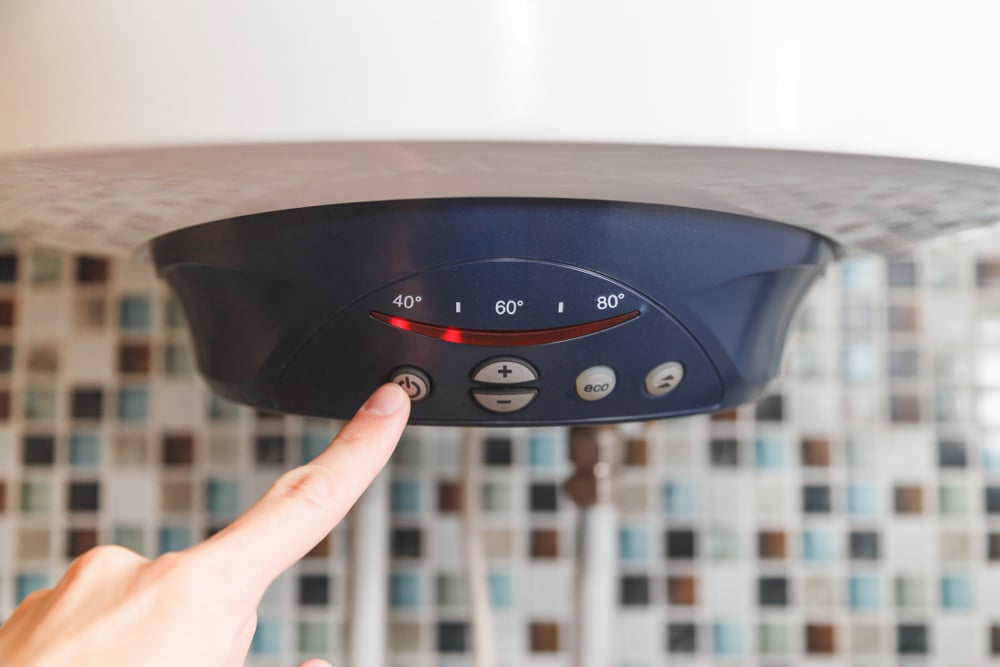
It’s a simple step, yet many homeowners overlook it: checking to see if the boiler is actually switched on.
It’s unlikely anyone in the household deliberately turned the boiler off - chances are a power cut in the night is behind your problem.
Switch the boiler back on, then give the timer a quick check to make sure it hasn’t been affected by the power outage, and you should be good to go.
Check the pilot light
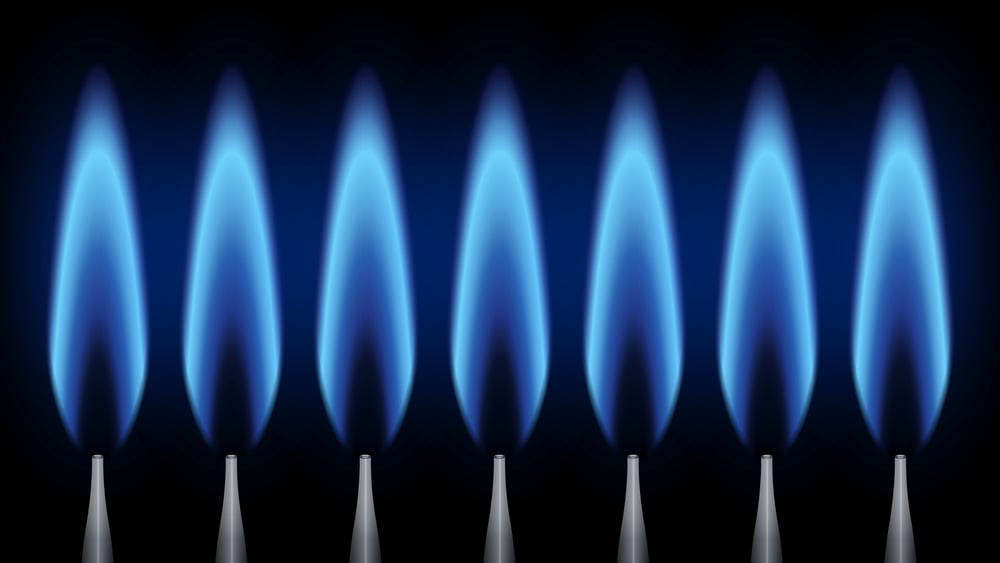
The pilot light on many gas boilers, especially some of the older models, can be blown out by a strong wind, which can be very annoying.
But did you know even the tiniest speck of dust or dirt can block the tiny jet of gas feeding your pilot light, preventing it from igniting?
In some models, you can see whether there is a flame or not. If it’s gone out, your boiler manual should include instructions on how to restart or reset it.
If that doesn’t work, hop onto the JustFix platform and book a local, certified gas engineer to come and take a look.
Check out any strange noises
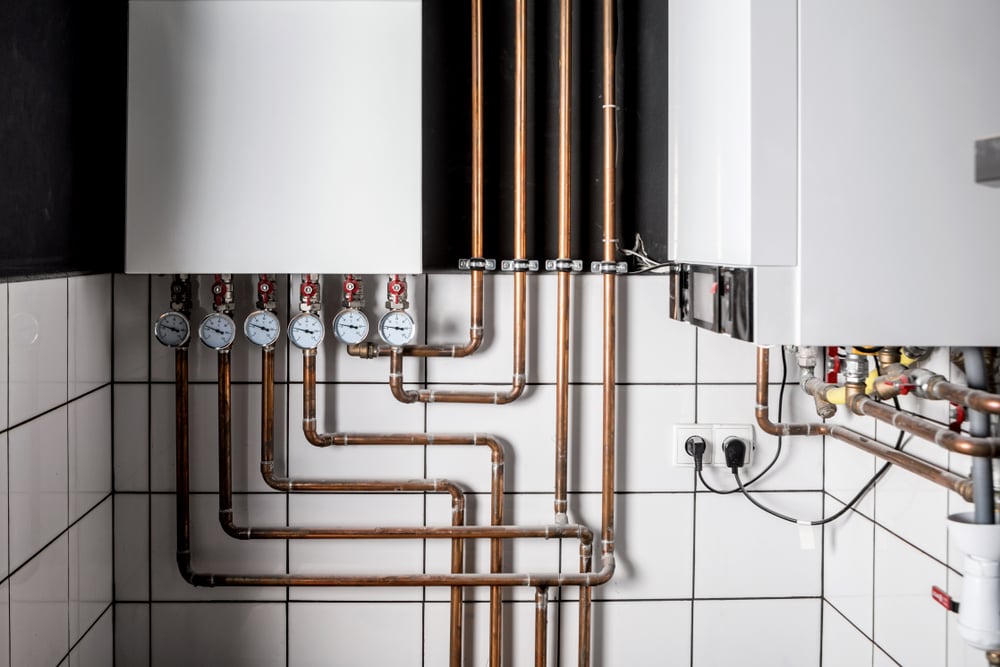
If your boiler is unexpectedly gurgling, banging or whistling more than usual, there could be several issues going on.
A faulty pump, low water pressure, air in the system or a build-up of limescale, similar to what you see in a kettle, could all be responsible.
Check the pressure level
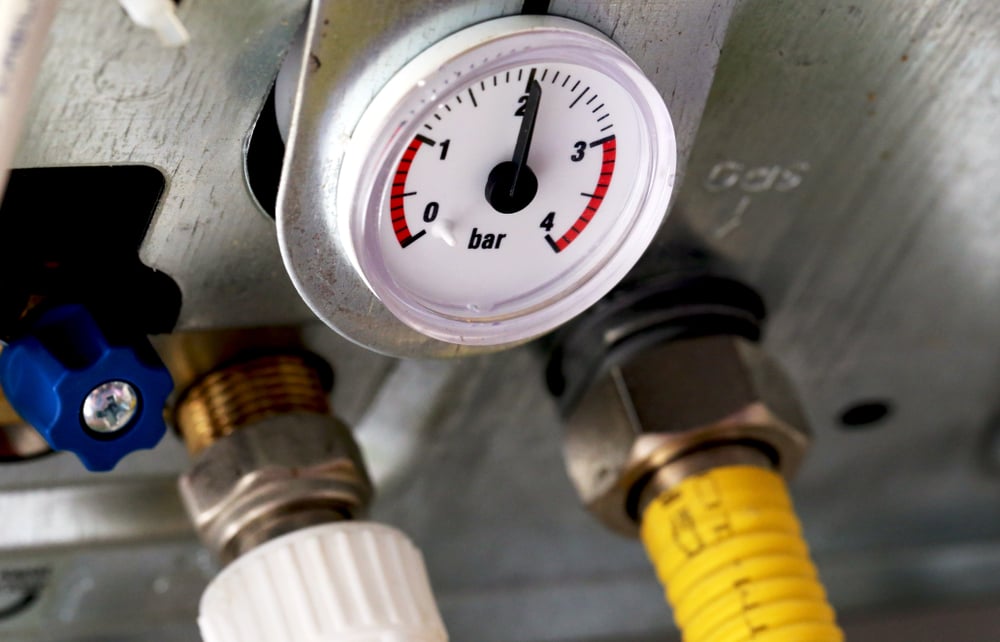
If your boiler has been running for many years, the pressure can drop. This is perfectly normal and shouldn’t necessarily need expert intervention.
The needle on your boiler’s pressure gauge should be firmly in the green zone or be at around one bar. If it’s dipped below that, find the taps below the boiler on the silver flexi filling loop pipe.
Turn them until they lock open at 45 degrees, and keep an eye on the pressure gauge. When the needle moves back into the green zone, shut off the taps and your boiler’s pressure is fixed.
If the boiler continues to lose pressure regularly, there may be something more serious going on. In that case, it would be wise to book one of our fixers to have a look.
Check the condensate pipe
%20(1).webp?width=980&height=670&name=shutterstock_1759893212%20(1)%20(1).webp)
This is a surprisingly common reason for a boiler not starting but you usually when the weather’s very cold.
The condensate pipe connects your boiler to the nearest outside wall. If it becomes frozen or blocked, the excess water can’t escape, prompting your boiler to stop working.
Carefully pour warm water over the condensate pipe to thaw out the blockage, then restart your boiler. It’s a good idea to insulate the pipe with some fabric or foam to prevent it happening again.
Check the thermostat
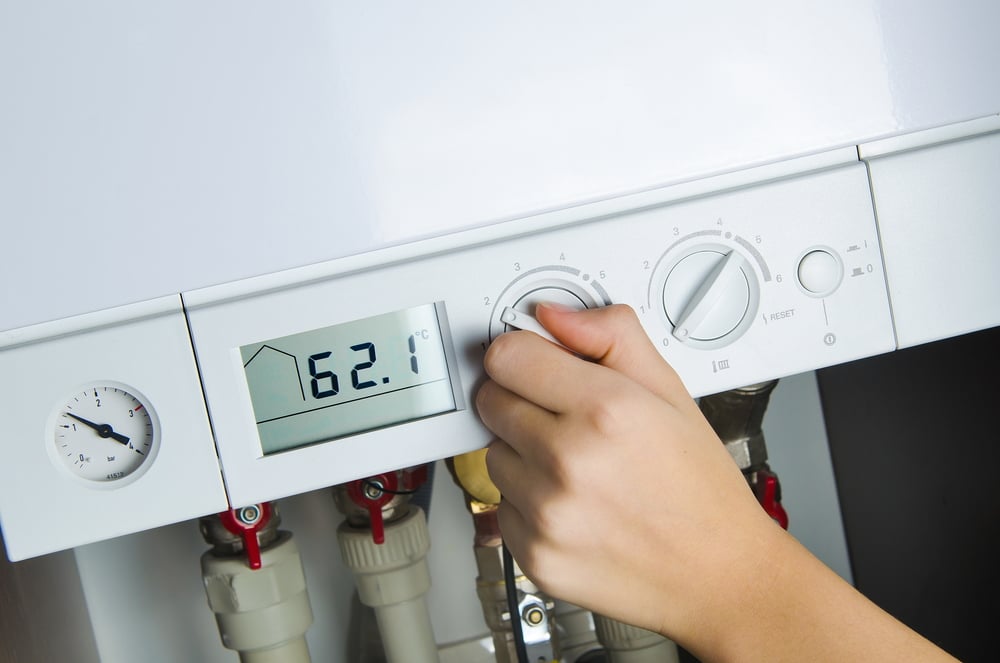
These days many boilers come with remote thermostats, and they may be the source of the problem.
First of all, check if the thermostat is switched on and that it has an uninterrupted power supply. Then have a look at the temperature settings to make sure they’re correct.
Make sure a holiday or standby mode hasn’t accidentally been activated and that your WiFi connection is solid, where applicable
Check the manual for any other troubleshooting measures.
Check for trapped air
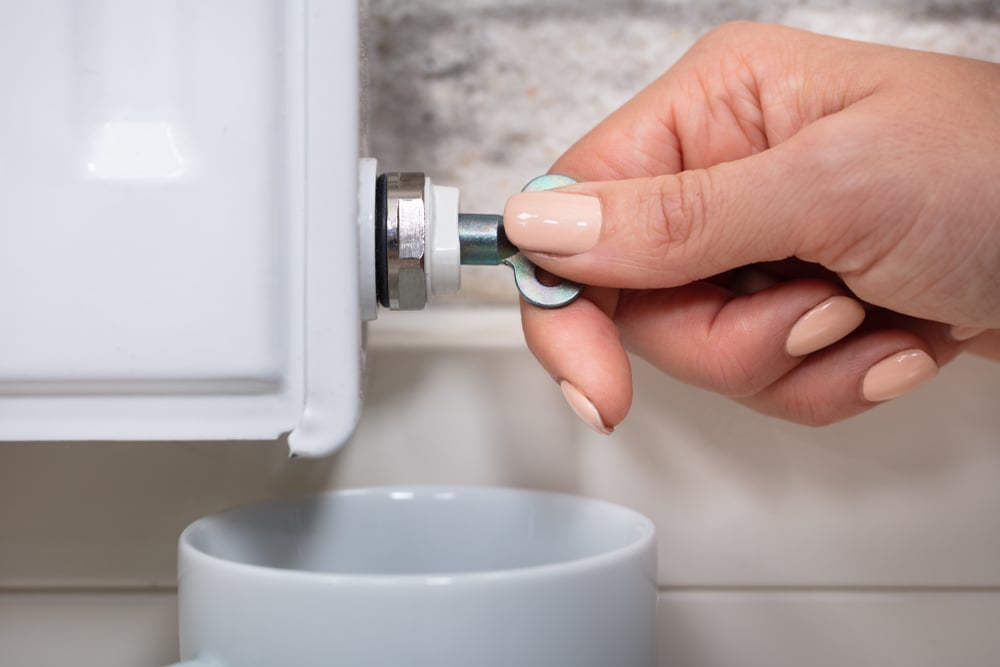
Excess air stuck in your central heating system can play merry hell with a boiler. Luckily, fixing it is a fairly simple matter.
Grab a radiator key and find the socket at the top or bottom of all your radiators. Use the key to open it just a little to let the air escape, but close it again quickly when water starts spitting out. NB Be careful at this point - the water will likely be hot.
This process is known as ‘bleeding’, and the removal of excess air from your central heating system will allow your boiler to work properly again.
Check for leaks
%20(1).webp?width=980&height=687&name=shutterstock_1529684213%20(1)%20(1).webp)
A leaking boiler is among the most common reasons for a system not firing up.
Go over everything as closely as you can, from pipes to radiators, and keep an eye on the boiler pressure.
Our vetted tradespeople can help
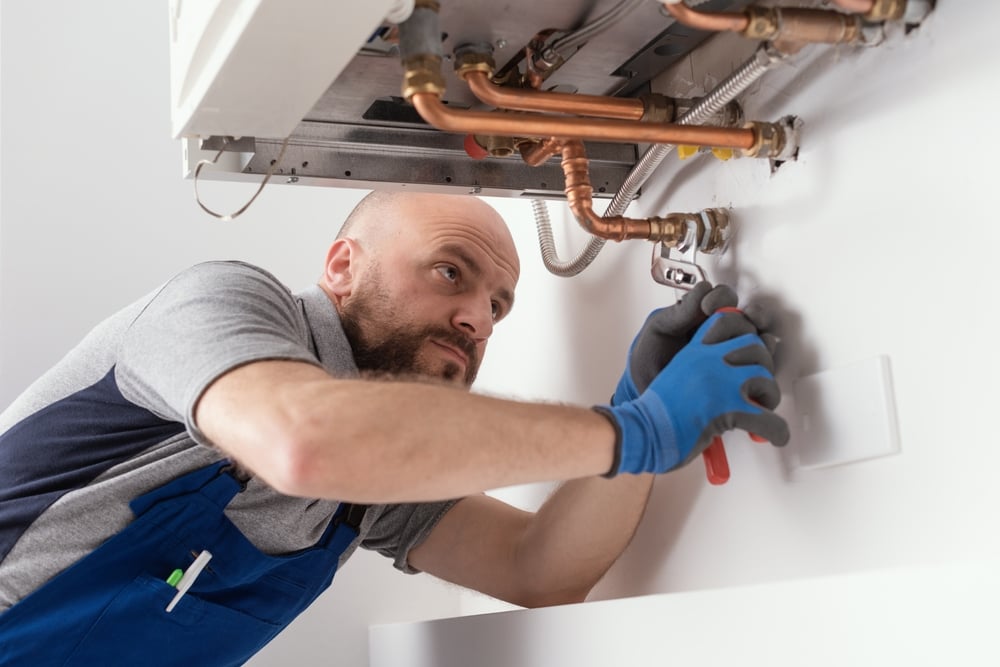
The checks we’ve listed will hopefully help you get your boiler up and running again.
Modern gas boilers are complex technologies and any attempts to fix problems yourself could not only be dangerous, but may invalidate any warranties or insurance.
It’s likely safer and more cost-effective to book a certified gas engineer to diagnose and solve the problem.
JustFix have a trusted, vetted team for regular boiler services and boiler breakdowns.
Let our fixers get your boiler up and running in no time.
